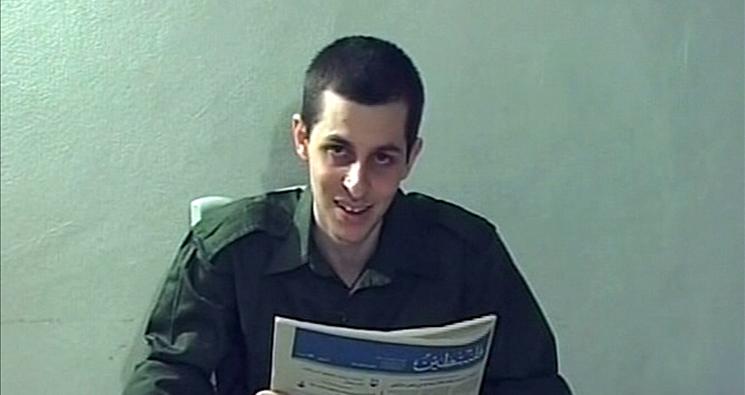What Gilad Shalit Means to Israel: Yes, it Makes Sense to Trade One Hostage for 1,000 Palestinians
Former Soviet dissident Natan Sharansky said that if you want to understand peoples' capacity for good relations with their neighbors, look first at how they value and treat their own. The Israeli-Palestinian conflict - punctuated by the imminent resolution of the Gilad Shalit saga - is a testament to that wisdom.
Shalit, the Israeli soldier whom Hamas has held in captivity since capturing him in 2006, will supposedly be freed shortly in exchange for Israel releasing more than 1,000 Palestinian prisoners.
Despite a national yearning to bring this young man - who has become a Jewish icon of resilience - home, some have questioned whether the price is too high, as many of the prisoners who will be released are cold-blooded murderers and terrorists who will undoubtedly return to plotting attacks against Israel. The exchange also violates the traditional Western credo of not negotiating with terrorists.
Yet, when Israeli Prime Minister Benjamin Netanyahu opened his cabinet meeting to seek approval of the swap, he pleaded that "Our sages teach that those who save one Jewish life, it's as if they have saved an entire world." The cabinet overwhelmingly approved the deal, with only three of 29 ministers voting against it.
That Israel would make such a seemingly lopsided trade, which will likely set back its security achievements, should tell the world something about its national fabric. It comes at a particularly ironic time, too, as just weeks ago, leaders from nation after nation took to the podium during the annual United Nations General Assembly meeting and castigated Israel for aggression, flouting international law and denying the Palestinians statehood. Terrorist attacks against Israel were rarely mentioned after-thoughts.
Shalit has never been an after-thought to Israelis, however, as his captivity symbolized an uncomfortable dilemma.
When the British High Commissioner for Palestine, Sir Alan Cunningham, prepared to depart the Middle East after the British mandate ended in 1948, he warned future Israeli Prime Minister Golda Meir that Egypt was planning an attack that would endanger Meir's daughter, who resided on a kibbutz that was a likely target. Meir responded, "If every mother recalled her child, who will be left to stop the Egyptians?" Israelis have always known that they have little choice but to sacrifice some of their sons and daughters for the greater existence of the Jewish people.
The tiny Jewish state is surrounded by hostile neighbors who declared war at its very inception. And it has been drawn into battle many times since its founding by relentless adversaries who launch terrorist attacks and seek to "push Israel into the sea." It is a nation whose tenuous existence is constantly clouded by the threat of war and whose survival depends on the willingness to fight.
That is likely what made the decision whether to bring Shalit home for such an exacting price so difficult. It sets a precedent that clearly plays into the Hamas playbook and demonstrates that huge concessions can be achieved with just one Israeli. But Israel reaffirmed its deepest values - and not just to the rest of the world, but to its own people and other Jews around the world. They are the values of life over death, peace over the sword and freedom over totalitarianism.
Israel's willingness to exchange 1,000 Palestinians for just one of its own demonstrates how dear its people hold each other's lives. That, naturally, serves as the foundation of a great, resilient society. For that reason alone, this deal was worth it.
